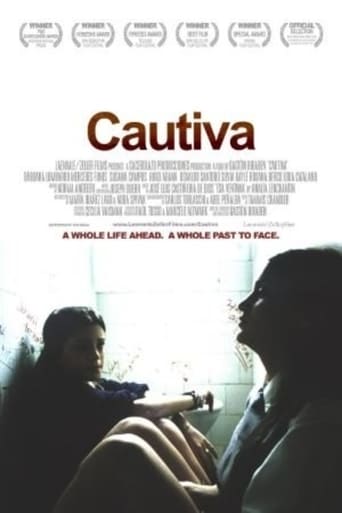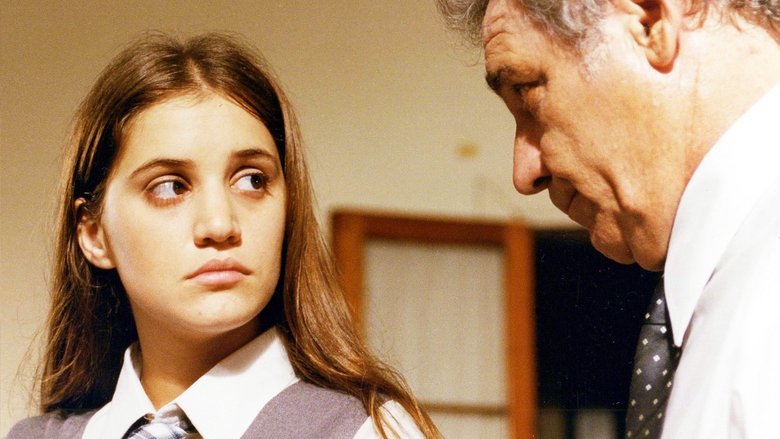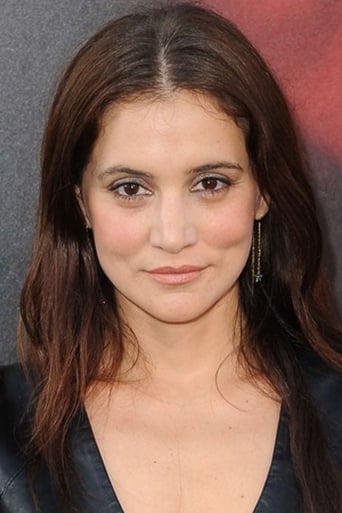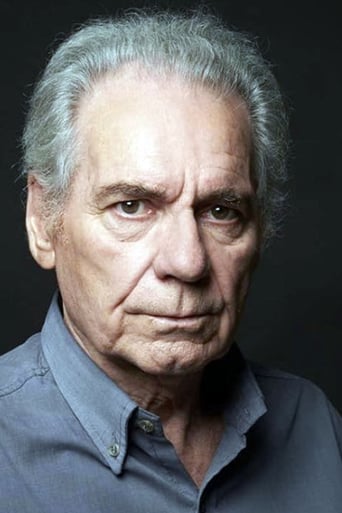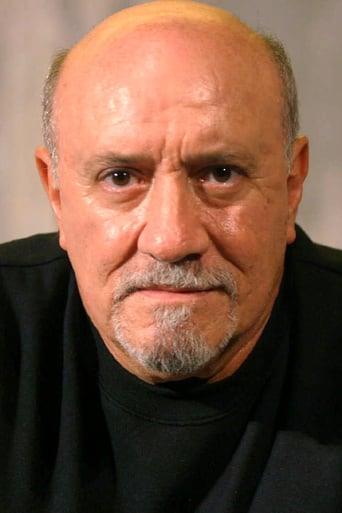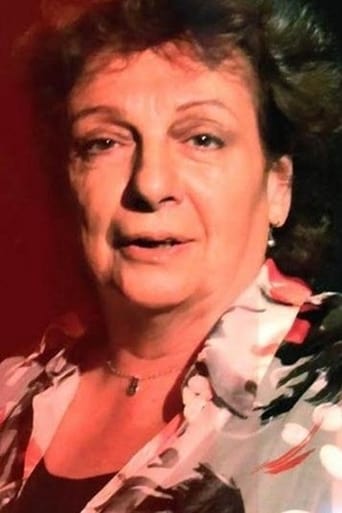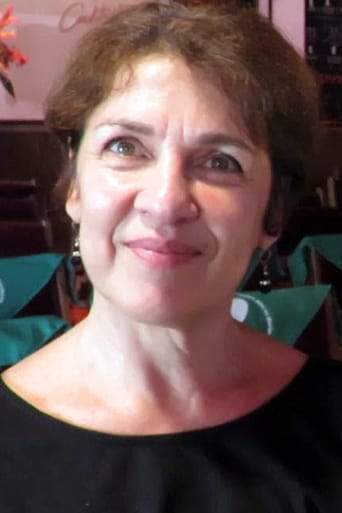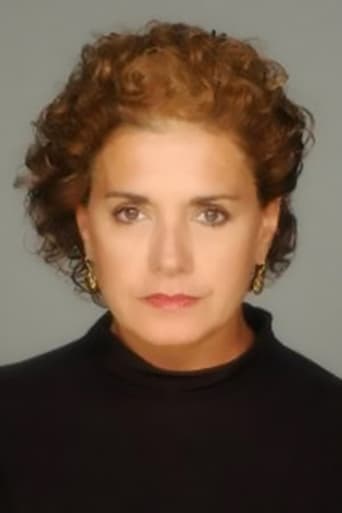Cristina's life is thrown into turmoil when she is suddenly escorted from her strict Catholic school in Buenos Aires and told that she is really Sofía Lombardi, the daughter of activists who disappeared in the '70s. Questioning everything she once thought true, Cristina embarks on a journey to find her true identity. Meeting others like herself, the young girl soon discovers the real-life horrors of Argentina's relatively recent past and the nightmare that claimed tens of thousands of lives during the country's "dirty war."


Reviews
This film tells of a young girl Cristina growing up in Buenos Aires, Argentina. One day her life gets turned upside down when court officials escort her from her school and inform her that she is really Sofía Lombardi, daughter of activists who disappeared during the 70s. From there begins a journey of searching for information about her parents and discovering her true identity. "Captive" complements the film "The Official Story" very well and emphasized the importance of historical memory, both for a country and for an individual. Cristina, like Alicia ("The Official Story"), is blissfully living in ignorance of the truth until someone else brings it to her attention. Both female characters are at first doubtful of the fact that so many people simply "disappeared". Their doubt then turns to belief and surprise that they didn't know earlier.
Thirty years ago, Argentinian dissidents were basically kidnapped, taken to concentration camps or clandestine prisons, and systematically eliminated. Oddly enough though, the children of the dissidents were taken and adopted by others, the adoptive parents sworn to secrecy. Years later, technology caught up with those affected in the form of blood tests, and the truth began to rear its head. This is a film about personal identity, what defines parenthood, and the decisions adults make which affect young lives.Barbara Lombardo stars as the confused teenager Christina/Sofia who can not bring herself to accept the circumstances thrust upon her. At first she only yearns to return to her "parents" until she discovers that even they were complicit in the circumstances surrounding her infancy. Her new family members attempt to make her feel comfortable and wanted, but Cristina/Sofia can not help but to research her past with the help of another friend who lives with a similar situation. Together they discover the uncomfortable truth behind all the confusion.First time director Gaston Biraben takes time telling his story, which may seem incomprehensible to outsiders unfamiliar with the background behind the events. He uses visual imagery to mark the conflicts and comparisons he uses to tell the story. Lombardo peering into a bedroom closet mirror may seem obvious, but he redeems himself with the nude shower scene with Christina/Sofia and her friend meeting face to face, suggesting that we're all naked when we discover the lack of identity in our background. It's a story told several times in other films, but it's one, like Holocaust themes/stories, that doesn't lose its ability to command our attention. *** of 4 stars.
CAUTIVA ('Captive') is a very effective film by young writer/director Gaston Biraben who has taken to task the impact of Argentina's 'Dirty War' of the late 1970s and succeeds in making a very personal story out of the horror of the 'desaparecidos' tragedy that stole from Argentina some of its brightest minds - and 'reassigned' the children of these 'disappeared ones' who were born in the prisons to political friends of the dictatorship. While the concept is gruesome as history and as content, Biraben manages to recreate that terrifying period of time in terms of the present. This retrospective study makes a huge impact.Cristina Quadri (the deeply impressive Bárbara Lombardo) lives with her parents in Buenos Aires, attending a Catholic girls' school, seemingly a happy young teenager. One regular day she is called to the principal's office and told she must visit a judge, a frightening concept for a young girl who is forced to go without informing her parents. The judge informs her that she is not 'Cristina Quadri' but instead 'Sofía Lombardi', the daughter of a couple who 'disappeared' in 1978 as political prisoners. A recent blood test Cristina/Sofia thought was a follow-up for a post-op check was actually a test to match her blood with that of the newly discovered true parents' family. Cristina, stunned by her lack of true identity, confronts her 'adopted parents' and struggles with the officials who insist she be returned to her blood relatives. Cristina becomes close to another 'adopted' girl and the two explore their roots, finding that they were born in prisons and then given to police officials to be placed in homes. The transition from adopted to blood family is the path the film explores: despite the comforts of present life the girls must know their origins to fully realize their identities.The cast is uniformly strong, the concept of the film works well as Biraben snaps us back and forth between the World Cup Soccer Game in Buenos Aires in 1978 that contrasts so gravely with the concurrent underground disappearance of the intellects of the country, and the performance by Lombardo holds the credibility of the story well. There is a fine music score by José Luis Castiñeira de Dios that combines a suite for cello and piano with elements from Mozart's Requiem very effectively. This film has been awarded many prizes since its appearance in 2003: the prizes are justly deserved. Highly recommended viewing. Grady Harp
A political film in the higher sense of the term, it made me put into question many beliefs I had on my country. Isn't this one of the highest functions of Art!? What I liked most is that, although it obviously "has an agenda", I don't think they fall for "defending a political thesis at all costs". Such a common mistake of Argentine cinema on the "desaparecidos"... It's not without defects, thou. A bit "black and white", stereotyped characters. Let me elaborate: the "left wingers" seem to have no defects AT ALL, they're "full of love and high principles". And the "rednecks" are unlawful liers, violent, hypocritical and even ..."ugly"! They could also take bribes to "have all vices"... I mean, yes, characters could be more nuanced, but, given the low average of reality in most other films of the genre, I think this one deserves accolades. Some humour in any way would have helped, I guess. Just a personal opinion. Is there any worse thing than what happens here? I can't think of more than one (murder, in all its forms). I think even rape is "less bad"! Before turning this into a "moral philosophy", let me point at the scenes I liked most: 1) When Sofía and her expressive Spanish friend have this important talk about life, surrounded by soccer. Now as before, quenching everything that matters. The "paralelism" is challenger indeed! 2) Having Ives's "The unanswered question" as a musical score when... (I can't say more!) 3) Final scene (aerial take, Handel?) 4) The shower scene, between the two now women, "naked" in more than one sense 5) The brawl between the Quadris and Sofia. An one moment, Pablo starts treating Sofia as a stranger, almost an enemy. Suddenly, her "dear daughter Cristina" is dead, even before he hits her. (maybe a bit predictable I guess) 6) (you may laugh) "The nightmare". It made me realize true horror is not what Hollywood sells us, it's opening a door into the unknown (in her grandma's or aunt's house) and finding a glimpse of a life frozen in time (her dead mother's). The film luckily avoids many pitfalls. Has only one very unbelievable moment, when a nun's teen escapes from Tribunales, from the same savvy cops who reduce the also hard boiled Pablo Quadri. Tribunales' zone is very WELL FILMED, feels absolutely real to somebody like me who's hanged around there very often. Retiro, the trains, both schools... It's a very Argentine film! By the way, found it great how she "downgraded" economically from her rather posh house in the suburbs to her grandma's "dark old house" & derelict Citroen! The contrast between the nun's school, which is not luxurious but looks like when compared to the truly depressing state school! I was surprised about the performances! Have to say I didn't expect much from this film, for a) I don't like Argentine cinema b) the subject is normally a sign of a tsunami of clichés c) didn't have much faith in Lombardero. When I saw "Hugo Arana" I feared the worst :) I had to gulp my prejudices, they both acted surprisingly subduedly, without overemphasis. I had my "lesson", they taught it to me. I would have liked to know what was being played during the film, I loved the usage of classical music throughout the film (not in just a couple of broken scenes). My kudos to the director, of whom I knew nothing, and who (thanks IMDb!) has been a "sound editor" in mainstream American cinema! Well, I hope he continues to surprise us!
